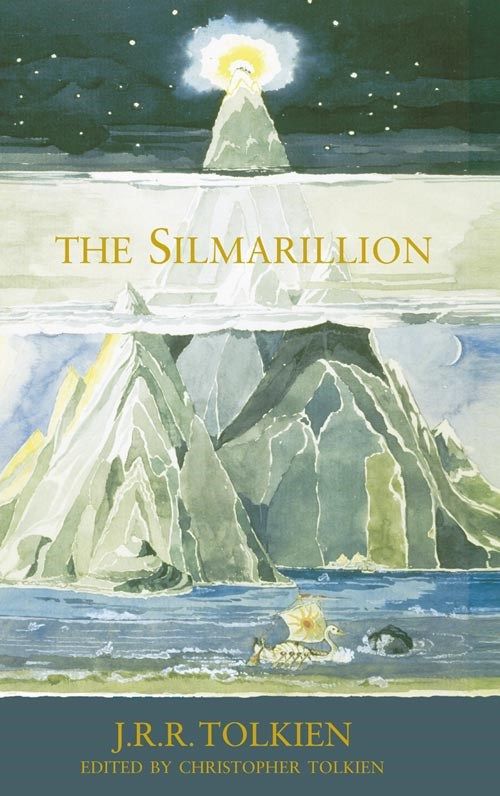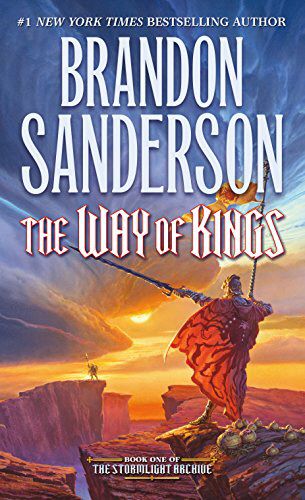Mythopoeia Fantasy

by MissBookNut
Mythopoeia is a sub-genre of fantasy that allows you to do whatever the hell you want to your world.
Okay, not really. I mean, there are certain logical rules you have to obey in writing, blah blah blah, but mythopoeia is essentially the subgenre that details the freedom of creating your world. Myth wise, that is.
Here's an official definition of it from the TV Tropes site: Mythopoeia (from the Greek words that mean "myth-making") is a narrative genre in modern literature and film where a fictional mythology is created by the author or screenwriter. The word mythopoeia and description was coined and developed by J. R. R. Tolkien in the 1930s. The authors in this genre integrate traditional mythological themes and archetypes into fiction. Mythopoeia is also the act of making (creating) such mythologies.
You got that? Yes? No? If your answer is the latter, I suggest you reread paragraph number three. Anyway, a lot of authors within the fantasy genre—especially for those who write high or epic fantasy—will most definitely craft myths within their stories. Why? It lends a certain depth to the world; it forms the foundation of certain cultures and customs. Most importantly, it makes the world believable. The reality we have now was built upon myths, like how the Pantheon was built to worship Athena, the Greek goddess of wisdom; or how the Chinese have so many festivals in honour of certain myths.

With that said, does it truly contribute to the larger plot at hand in a story?
Oftentimes, the myth is told not only to enrich the world, but to remind the protagonist of his or her current situation. Or perhaps in the case where myths are real, they actually become the main driving point of the story. Myths aren't just sitting there to look pretty and decorate your tale with flowers, they're there to push the heroes to keep moving on despite their struggles, or to provide a vital clue as means to the end of said struggles.
Depending on the author, there really is no end to the usage of myths.
At the same time, it explores philosophical and metaphysical concepts. A myth created by oneself is a product of that person's extensive research into the myths of our world, shaping and melding them into something that is deemed acceptable to oneself—a reflection of our current state of mind.
In a way, our myths reflect our beliefs. The dragon haunting the cave you wrote about? Maybe the dragon exists because a real dragon exists in your head, terrorising you at certain points of your life. The gods in your world are cruel and distant? Perhaps it shows your personal faith, whether it exists or not.
To give a personal example, I crafted the religion in my story, Constantine, with my own religion in mind: Christianity. But I did not just take the good and ignore the bad. In the myths I created, it reflected how superstitious certain Christians could be, choosing to believe in the power of saints instead of our God. In my writing, I pointed out how taking religion to extremes was destructive. The crusades, terrorism—the root was religion. Even amongst Christians, I won't deny that we discriminate each other according to which 'sect' we're from.
(To everyone out there, please don't take personal offense. This is my personal expression.)
Some prime examples would be almost anything within the high/epic fantasy genre. For instance:
• The Lord of the Rings trilogy, by our master of mythopoeia himself, J.R.R. Tolkien
• The Chronicles of Narnia, by C.S. Lewis
• The Stormlight Archive series, by Brandon Sanderson
• Throne of Glass series, by Sarah J. Maas
• His Dark Materials series, by Philip Pullman

And I'm only touching upon some of the examples within the sub-genre. If I were to truly list them all down, it might as well encompass over half of the fantasy books we have on bookshelves today.
Now, why do I create myths?
In a way, it grants me freedom—I can paint the world in whatever colours I want it to be. I can have an entire world in my head of my own imagination, a solace from reality.
At the same time, it keeps me grounded in reality.
Sounds weird, doesn't it? But hear me out. My myths, when it comes down to it, are a reflection of my world. I see myself as a Christian being judged by other Christians, simply because I refuse to classify myself as a Catholic or Methodist or whatnot. I see my friends, who are of different religions, and the myths surrounding their gods. And I'm fascinated. And I incorporate traits of those myths into my stories.
So, myth or reality? Legend or truth? It doesn't matter, does it? So long as the myths continue to give freedom, authors will continue to craft them, readers will continue to savour them. Because let's admit it, sometimes myths are easier to swallow than truths.

Example of Mythopoeia on Wattpad:
Constantine by MissBookNut
Synopsis:
Religion rules Constantine's world...and she has been condemned as the Spawn of the Devil. She is a Champion, a human being blessed with superhuman abilities by the deities of her world. However, her patron happens to be the Lord of War and Strategy - and women were never supposed to be Champions of War.
In order to survive in a world that would rip her apart, she disguises as a boy, training to fulfill her supposed destiny. But fate has other things in store for her. An ancient evil is rising - and only Constantine may have the power needed to fight it.
Along with a brash warrior and a too-perceptive scholar, Constantine begins to unravel secrets of a prophecy foretelling the end of the world. Now, she must learn how to fight evil with nothing but a magical knife as well as powers she knows next-to-nothing of.
The real problem though? She may have been the one to call the great evil in the first place.
Excerpt:
Lady Marcella Rutherland's people had come to see her child die.
Weak winter sunlight glinted off the gruesome structure erected in the center of the town square. Branches as thick as thighs were bound together to form a pyre. Motionless, she just observed the various expressions of the townspeople. The wind cut into her bones, despite her being clothed in a warm, woolen dress. Her mind went numb, unable to absorb the full impact of the situation. Hysteria gurgled at her lips—everyone was so eager to see the burning of a helpless child.
Absurd, yet terrifying.
The baby in her arms clawed at her, bawling its pathetic little lungs out. She grasped its fat little fingers with her long, slender ones. The baby gurgled, ceasing to wail. Marcella smiled a mirthless smile. How could she betray one so innocent? How could she do this? How could she condone with this blasphemy?
But it had to be done.
One of the townsmen threw a lit torch into the pyre. The flames licked up the wood immediately, transforming it into a demonic chasm ready to devour anything in its path. An orange wave rose towards the sky, inducing gore-hungry bellows and ward-evil prayers from the crowd. Marcella stifled a sob.
The bishop, with his voluminous robes threatening to swallow him whole, adjusted the ridiculous-looking hat perched atop his balding head. Clearing his throat and flipping a copy of the Manuscript open, he mumbled for Marcella to begin her part in the ritual. With a deep breath, she closed her eyes and began to sing.

More on Myth:
Jürgen Habermas – Myth and Ritual
https://youtu.be/qA4iw3V0o1c
Dr. Tom Shippey – Myth In Modern Fantasy
https://youtu.be/Ssmc5Jy89yA
Bạn đang đọc truyện trên: AzTruyen.Top